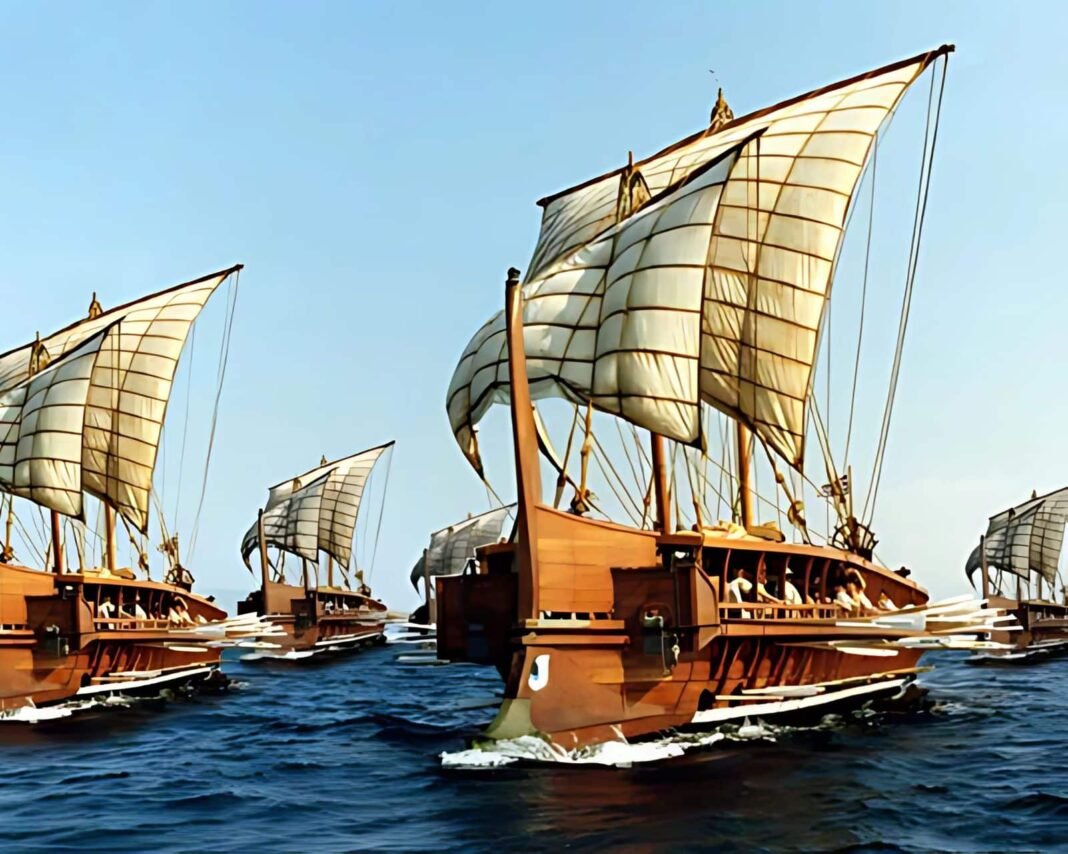
Beyond their bronze rams and powerful oars, the formidable warships, the triremes, of ancient Athens harbored a secret weapon: their names.
A groundbreaking new study published in the Journal of Maritime Archaeology reveals that the Athenians meticulously selected the names of their warships not by chance, but as a sophisticated psychological tool designed to inspire, unite, and ultimately boost the morale and performance of their crews in the heat of battle.
The research, led by George (Giorgos) Apeitos of the University of Oxford, delved into 279 trireme names meticulously recorded in 4th-century BC inscriptions. What emerged was a fascinating insight into Athenian societal values and military strategy, demonstrating how a simple name could transform a vessel from a mere machine of war into a potent symbol of protection and shared purpose.
Athenian triremes were technological marvels of their era – swift, deadly vessels powered by 170 oarsmen and capable of devastating enemy ships with their bronze pistons.
These complex machines were not just a testament to centuries of naval innovation but also a direct product of Athens’ democratic processes, which saw contributions from all levels of society, from timber cutting to construction and combat. Athens’ very supremacy in the Aegean hinged on its powerful fleet, making every detail, including a ship’s name, critically important.
Athens warships’ names fell into 4 categories
Apeitos and his team found that the trireme names fell into four distinct categories, reflecting the core values and aspirations of Athenian society:
Divine and Heroic Protection (24%): Nearly a quarter of the names invoked gods and heroes such as Athena, Artemis, or Achilles, aiming to imbue the ship with divine favor or legendary courage. Interestingly, Poseidon, the traditional god of the sea, was conspicuously absent, perhaps already considered the universal protector of all ships.
Abstract Athenian Ideals (19%): A significant portion of names referenced abstract qualities central to Athenian ideals, including “Democracy,” “Liberty,” and “Justice.” “Democracy” proved to be the most popular, gracing 14 different ships over a remarkable 50-year period.
Light, Power, and Victory (12%): Names like “Dawn,” “Light,” and “Victory” were chosen to evoke strength and success. So popular was “Victory” that two ships bore the name simultaneously.
Ferocity and Cunning (4%): A smaller but impactful category included animal names such as “Lioness” or “Snake,” symbolizing the ferocity and cunning desired in naval engagements.
The study posits that this deliberate naming convention was a calculated military and psychological warfare strategy. For sailors often far from home and facing life-or-death battles, the ship’s name provided a vital sense of identity and pride, connecting them to something larger than themselves.
Modern psychological studies corroborate this, showing that groups with a strong collective identity exhibit greater resilience under stress. This insight explains why triremes also often featured painted eyes on their bows and other decorations, making them appear “alive” and reinforcing their role as protective symbols.
Furthermore, a ship’s success in battle could lead to its name being inherited by subsequent vessels, a practice designed to sustain crew morale across generations. Even with annual changes in crew and leadership, the enduring symbolic power of a ship’s name helped forge a cohesive and stable unit, fostering a sense of shared purpose faster than simple personal acquaintance, the researchers explain.
The practice of giving meaningful names to military vessels is not unique to classical Athens, the study concludes, enduring to this day. Just as modern navies honor historical heroes, the Athenians honored Achilles and Ajax. The act of bestowing an inspiring name upon a warship remains, even millennia later, a powerful way to unite people under a common cause and instill pride in their mission.
Related: Ancient Greek Trireme Ships Enabled the Rise of Athens as a Great Power


